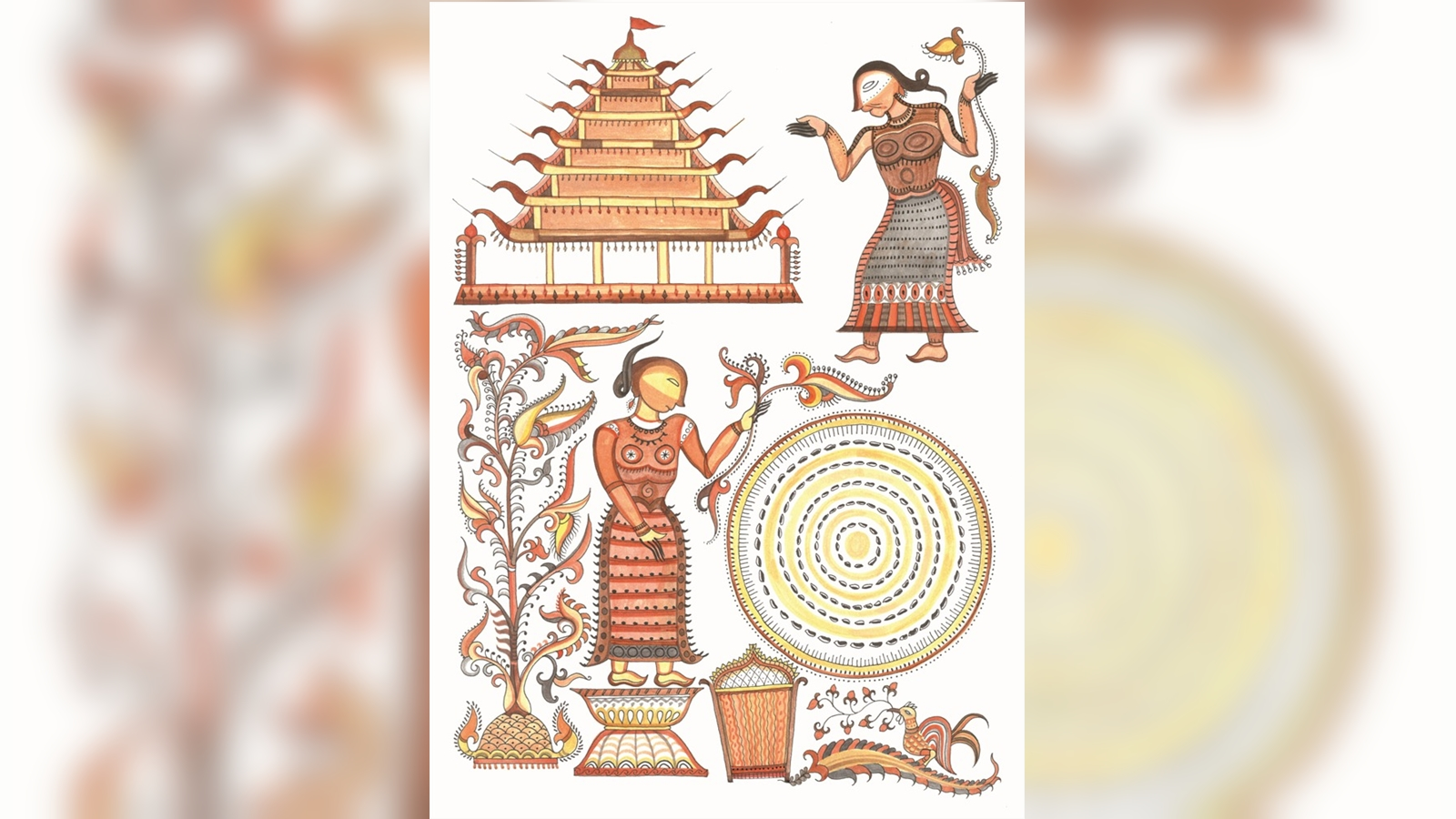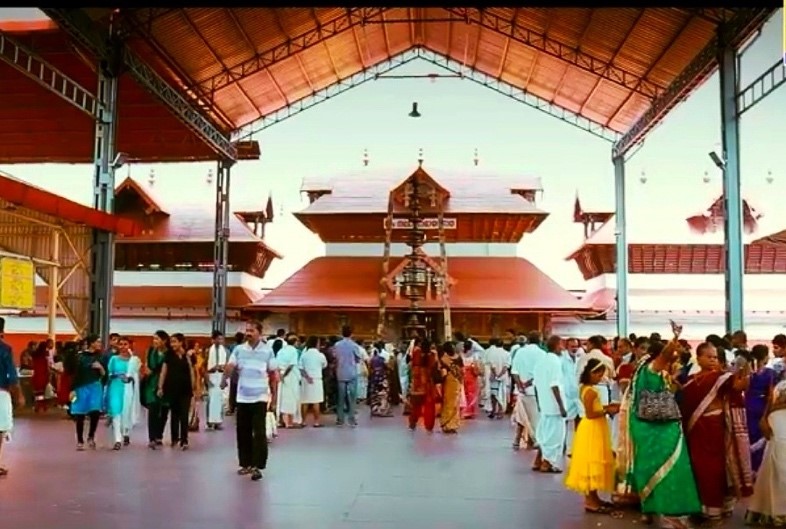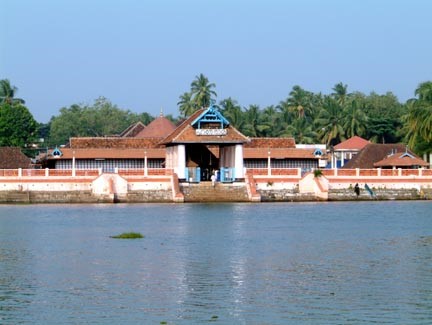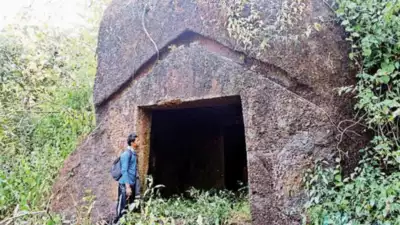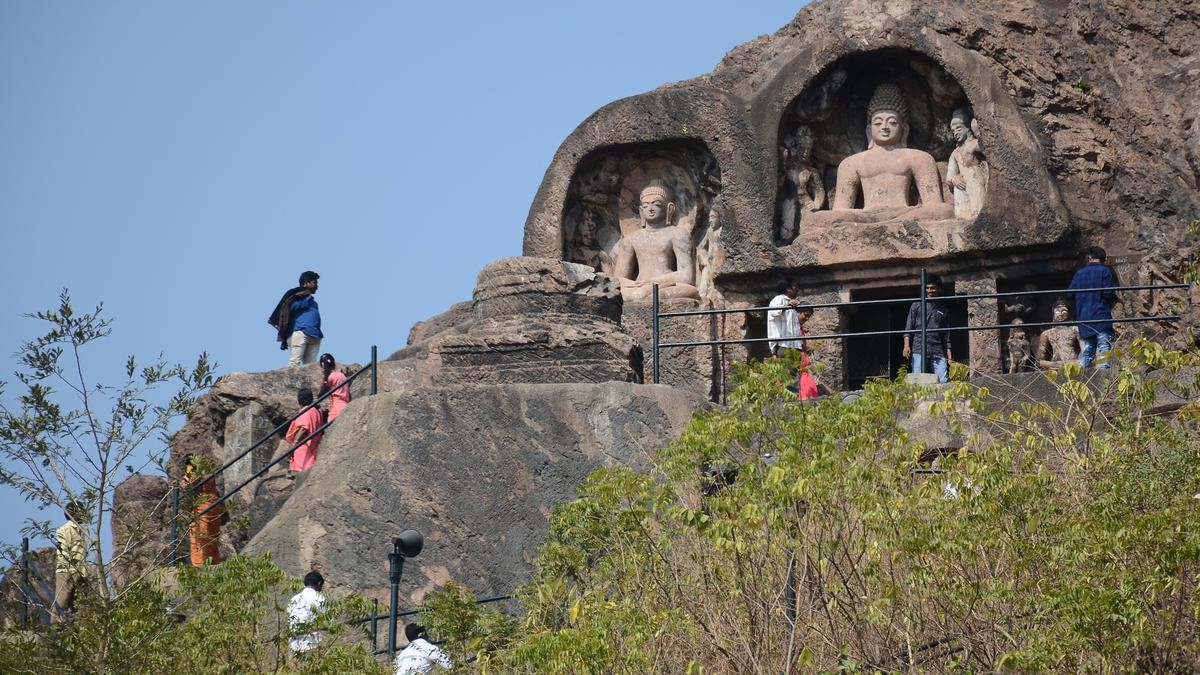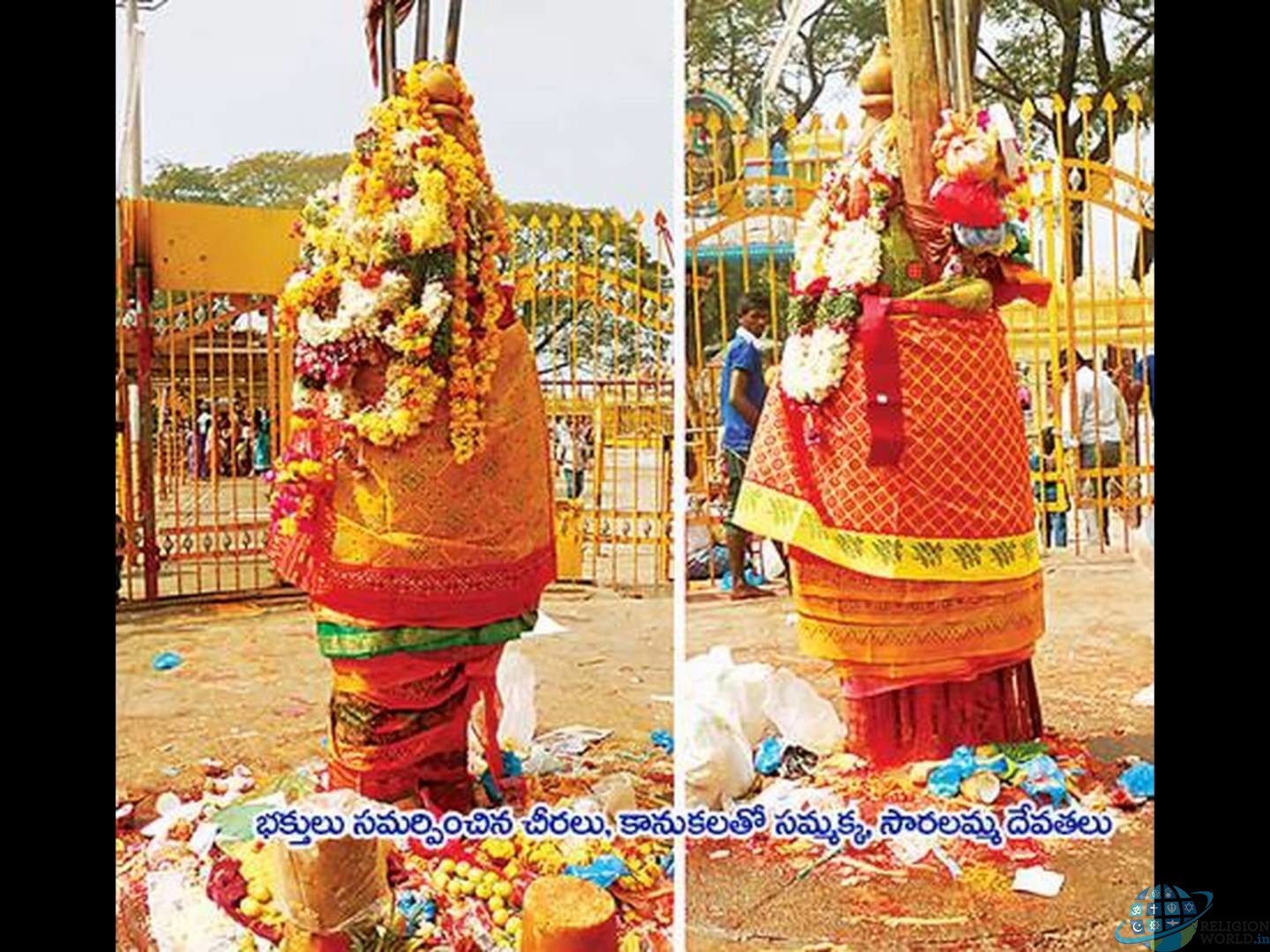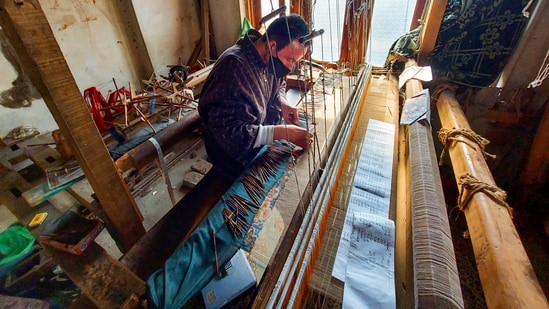Description
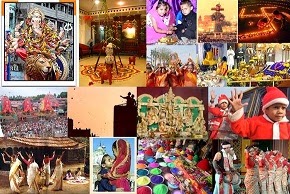
Copyright infringement is not intended
Context: The President of India, Shri Ram Nath Kovind has sent his greetings to fellow citizens on the eve of Vaisakhi, Vishu, Rongali Bihu, Naba Barsha, Vaisakhadi and Puthandu-Pirappu.
Ugadi
- Ugadi/Yugadialso known as Samvatsarādi, is the New Year's Day for the States of Telangana, Andhra Pradesh, Karnataka in India.
- It is festively observed in these regions on the first day of the Hindu lunisolar calendar month of Chaitra.
- This typically falls in April month of the Gregorian calendar.
- The same day is observed as a New Year by Hindus in many other parts of India. For example, it is called Gudi Padwa in Maharashtra.
Gudi Padwa
- Gudhi Padwa is a spring-time festival that marks the traditional new year for Marathi and Konkani Hindus along with other fellow Hindus.
- It is celebrated in and near Maharashtra and Goaon the first day of the Chaitra month to mark the beginning of the New year according to the lunisolar Hindu calendar.
- It signifies the arrival of spring and to the reaping of Rabi crops.
Baishakhi
- It is observed by Hindus and Sikhs.
- It also marks the beginning of Hindu solar New year.
- Usually celebrated on 13 or 14 April every year and is a historical and religious festival in Hinduism.
- For Sikhs, Vaisakhi observes as a major Sikh festival marking the birth of Sikh order started after the persecution and execution of Guru Tegh Bahadurfor refusing to convert to Islam under the orders of the Mughal Emperor Aurangzeb.
Navreh
- This Kashmiri New Year is the celebration of the first day of the Kashmiri new year by Kashmiri Hindus.
- Kashmiri Pandits dedicate Navreh festival to their Goddess Sharikaand pay homage to her during the festival.
- It takes place on the first day of the bright half on the month of Chaitra (March–April) of the Kashmiri Hindu calendar.
Sajibu Cheiraoba
- It is also called Meetei Cheiraoba or Sajibu Cheiraoba, is the lunar new year festival of the people who follow the religion of Sanamahismin the Indian state of Manipur.
Cheti Chand
- It is a festival that marks the beginning of the Lunar Hindu New Year for Sindhi Hindus.
- The date of the festival is based on the lunar cycle of the lunisolar Hindu calendar, falling on the first day of the year, in the Sindhi month of Chet (Chaitra).
Vishu
- Vishu is a Hindu festival celebrated in the Indian state of Kerala, Tulu Nadu region in Karnataka, Mahé district of Union Territory of Pondicherry,neighbouring areas of Tamil Nadu and their diaspora communities.
- The festival marks the first day of Medam, the ninth month in the solar calendar followed in Kerala.
- The Vishu arrangement typically includes an image of Krishna.
Bohag Bihu
- Bohag Bihu or Rongali Bihu also called Xaat Bihuis a traditional aboriginal ethnic festival celebrated in the Northeastern Indian state of Assam and other parts of northeastern India by the indigenous ethnic groups of Assam, and marks the beginning of the Assamese New Year.
- In Assam locally the onset of'Bohag' (Assamese Calendar) marks the starting of Rongali Bihu.
- The three primary types of Bihu are Bohag Bihu or Rongali Bihu, Kati Bihu or Kongali Bihu, and Magh Bihu or Bhogali Bihu.
- Each festival historically recognizes a different agricultural cycle of the paddy crops.
- During Rangali Bihu there are 7 pinnacle phases: 'Sot', 'Raati', 'Goru', 'Manuh', 'Kutum', 'Mela' and 'Sera'.
Puthandu
- It is also known as Puthuvarudam or Tamil New Year, is the first day of year on the Tamil calendar and traditionally celebrated as a festival.
- The festival date is set with the solar cycle of the lunisolar Hindu calendar, as the first day of the Tamil month Chithirai. It falls on or about 14 April every year on the Gregorian calendar.
- The same day is observed by some Hindus elsewhere as the traditional new year, but is known by other names such as Vishu in Kerala, and Vaisakhi or Baisakhi in central and northern India.
MahaBishuba Pana Sankranti
- Pana Sankranti, also known as Maha Bishuba Sankranti is the traditional new year day festival of Odias in Odisha, India.
- The festival occurs in the solar Odia calendar on the first day of the traditional solar month of Meṣa, hence equivalent lunar month Baisakha.
- The festival is celebrated with visits to Shiva, Shakti or Hanuman temples.
- People take baths in rivers or major pilgrimage centers. Communities participate in mela (fairs), participate in traditional dance or acrobatic performances.
- A notable climax of the social celebrations is fire-walk, where volunteers sprint over a bed of burning coal while being cheered with music and songs.
Nuakhai Juhar
- Nuakhai Juhar is harvesting festival of Odisha.
- Nuakhai is a combination of two words, 'nua' meaning new and 'khai' means eat, it thus signifies "eating of new rice".
- People worship food grain on this auspicious day.
- The farmers offer the first produce from their lands to Goddess Samaleswari, the famous mother goddess of Sambalpur district of the state.
Wanchuwa festival
- This festival is celebrated by Tiwa tribesmen to mark their good harvest.
- It comes with songs, dances, a bunch of rituals and people clad in their native attires.
List of New Year Festivals in India
|
Calendar
|
Festival name
|
Region / Communities / Religion
|
|
Lunar
|
Ugadi
|
Andhra Pradesh, Telangana, Karnataka
|
|
Lunar
|
Gudhi Padwa
|
Maharashtra, Goa
|
|
Lunar
|
Navreh
|
Kashmir
|
|
Lunar
|
Ashadhi Bij
|
Kutch
|
|
Lunar
|
Balipratipada
|
Gujarat, Rajasthan
|
|
Lunar
|
Cheti Chand
|
Sindhi
|
|
Lunar
|
Chaitra Navaratri
(Hindu Lunar New Year)
|
North and Central India (Uttar Pradesh (Awadh, Braj, Bagelkhand),
Madhya Pradesh (Bundelkhand,
Malwa, Mahakoshal, Gird),
Bihar (Bhojpur, Magadh), Chhattisgarh, Jharkhand)
|
|
Solar
|
Mesha Sankranti/Vaisakhi
(Hindu Solar New Year)
|
North India (in Punjab, Haryana, Jammu, Uttar Pradesh, Himachal Pradesh, Uttarkhand (Garhwal and Kumaon), Nepalis (Sikkim, Darjeeling)
|
|
Solar
|
Puthandu
|
Tamil Nadu
|
|
Solar
|
Bisu Parba
|
Tulu Nadu
|
|
Lunar
|
Sajibu Cheiraoba
|
Manipur
|
|
Solar
|
Buisu
|
Tripura
|
|
Solar
|
Bwisagu
|
Bodoland
|
|
Solar
|
Bohag Bihu
|
Assam
|
|
Solar
|
Pana Sankranti
|
Odisha
|
|
Solar
|
Pahela Baishakh
|
West Bengal and the wider Bengal region
|
|
Solar
|
Jur Sital
|
Mithila
|
|
Lunar
|
Losoong/Namsoong
|
Sikkim (Bhutia, Lepcha)
|
|
Lunar
|
Galdan Namchot
|
Ladakh
|
|
Lunar
|
Losar
|
Arunachal Pradesh (Monpa)
|
|
Lunar
|
Gyalpo Lhosar
|
Sikkim (Sherpa)
|
|
Lunar
|
Tamu Lhosar
|
Sikkim (Gurung)
|
|
Lunar
|
Sonam Lhosar
|
Sikkim (Tamang)
|
|
Solar
|
Sangken
|
Arunachal Pradesh (Khamti, Singpho, Khamyang, Tangsa), Assam
(Tai Phake, Tai Aiton, Turung)
|
|
Solar
|
Bizhu
|
Chakma
|
|
Solar
|
Pateti
|
Parsis
|
|
Solar
|
Nowruz
|
Zoroastrians
|
https://www.pib.gov.in/PressReleasePage.aspx?PRID=1816448








